WILDLABS groups like this one are where conservation tech community members from every career stage gather to ask questions, share resources, and network. If you're just getting started in your #tech4wildlife career, making a career change from the tech world into conservation, or you're a student finding your path in the field, the Early Career group wants to meet you!
Likewise, the Early Career group is an excellent place for our conservation tech experts to share opportunities and resources with a wide audience of people who will make a big impact in conservation in the coming years.
How can you get started in our Early Career group?
- Visit our Welcome Thread and tell us about yourself and your career goals!
- Drop into our Share Your Master's Project thread to ask questions, share your updates, get advice, and discuss your project goals with people who can help you make progress
- Network with our group's regular events like Happy Hour, launching later in 2022
The Early Career group is looking for an organizer for a 6-month period to plan networking events and help conservation tech students from around the world connect! If you're interested in volunteering as group organizer, email ellie.warren@wildlabs.net with a brief summary of your early career conservation tech experience so far, and with an idea for one event or activity you'd propose for the group. We hope to hear from you!
No showcases have been added to this group yet.
Data scientist with expertise in Computer vision and remote sensing and a passion to work for the environment.
- 0 Resources
- 4 Discussions
- 5 Groups
Smithsonian Institution
- 0 Resources
- 0 Discussions
- 13 Groups
- @och3k
- | she/her
- 0 Resources
- 0 Discussions
- 7 Groups
- @mariaptoro
- | she/her
Colombian biologist passionate about behavioral and evolutionary ecology, specializing in amphibians. My research explores animal communication and how environmental factors shape behavior and adaptation.
- 0 Resources
- 0 Discussions
- 9 Groups
- @aranFish
- | He/Him
CatchCam Technologies
Former CTO at SafetyNet Technologies


- 1 Resources
- 1 Discussions
- 6 Groups
MSc student in wildlife management and conservation


- 0 Resources
- 2 Discussions
- 12 Groups
- @ahmedjunaid
- | He/His
Zoologist, Ecologist, Herpetologist, Conservation Biologist

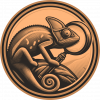



- 74 Resources
- 7 Discussions
- 25 Groups
- @alexrood
- | she/her
WILDLABS & World Wide Fund for Nature/ World Wildlife Fund (WWF)
I'm the WILDLABS Communications and Community Management Associate Specialist at WWF-US

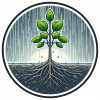



- 149 Resources
- 95 Discussions
- 6 Groups
- @LisaHein
- | She/her
Conservationist with a focus restoration ecology/rewilding and botany, a keen birder and currently working in the Seychelles with giant tortoises


- 0 Resources
- 14 Discussions
- 6 Groups
- 0 Resources
- 0 Discussions
- 2 Groups
- @towardscybersecurity
- | He/Him
Cybersecurity is not just a skillset. It’s a state of mind.
- 0 Resources
- 0 Discussions
- 2 Groups
PhD student
- 0 Resources
- 0 Discussions
- 8 Groups
Careers
The San Diego Zoo Wildlife Alliance is seeking a new Research Associate to join their Conservation Technology Lab team.
29 July 2022
Applications are now open for the CLP 2023 Team Awards.
19 July 2022
Dr. Karen Holl's group at the University of California, Santa Cruz
4 June 2022
February 2026
July 2025
May 2025
February 2025
January 2025
event
| Description | Activity | Replies | Groups | Updated |
|---|---|---|---|---|
| In that case, you might want to keep an eye on the project from @Lars_Holst_Hansen |
|
Camera Traps, AI for Conservation, Conservation Tech Training and Education, Early Career, Human-Wildlife Coexistence, Protected Area Management Tools | 1 year 2 months ago | |
|
|
Community Base, Early Career, East Africa Community | 1 year 2 months ago | ||
| Fantastic!! |
|
Acoustics, AI for Conservation, Animal Movement, Build Your Own Data Logger Community, Community Base, Early Career, Ethics of Conservation Tech, Marine Conservation, Open Source Solutions | 1 year 2 months ago | |
| Hello Ms Esther👋Thank you for taking your time to reply to me with such helpful response.I'm interested in conservation technology such as camera traps, GIS and Remote sensing,... |
|
Early Career, East Africa Community, Community Base | 1 year 3 months ago | |
| We could always use more contributors in open source projects. In most open source companies Red Hat, Anaconda, Red Hat and Mozilla, people often ended up getting hired largely... |
|
Acoustics, AI for Conservation, Conservation Tech Training and Education, Early Career, Marine Conservation | 1 year 4 months ago | |
| I actually will be in Panama for an internship during June-July in the Azuero peninsula!! What organization are you both involved in? |
|
Conservation Tech Training and Education, Early Career, Women in Conservation Tech Programme (WiCT) | 1 year 4 months ago | |
| Hello community, I wanted to share some exciting updates about my ongoing conservation project for endangered species. I post this here... |
|
Human-Wildlife Coexistence, Early Career | 1 year 5 months ago | |
| Hi Sienna, I'm in the Worcester area and always keep an eye on positions nearby for my students. I recommend adding Mass Audubon to your list (currently searching for a land... |
|
Early Career | 1 year 5 months ago | |
| Hi folks! Happy 2024 and thanks in advance for your patience in case I over-used tags. If you’re using any form of natural language... |
|
AI for Conservation, Citizen Science, Climate Change, Conservation Tech Training and Education, Data management and processing tools, Early Career, East Africa Community, Emerging Tech, Ending Wildlife Trafficking Online, Ethics of Conservation Tech, Human-Wildlife Coexistence, Open Source Solutions, Software Development, Wildlife Crime, Women in Conservation Tech Programme (WiCT) | 1 year 7 months ago | |
| Thanks Aude, very useful. Will reach out to them! |
|
Early Career, Acoustics, eDNA & Genomics, Marine Conservation, Protected Area Management Tools | 1 year 7 months ago | |
| As I approach the completion of my Bachelor's in Mechatronics Engineering, I am eager to explore career opportunities within the field of... |
|
Early Career | 1 year 8 months ago | |
| I unfortunately don't have many unique insights for Europe. I'm North America based. We have companies out here like Aerium Analytics that seem like they'd fit your skill... |
|
Early Career | 1 year 9 months ago |
WILDLABS-WWF Graduate Intern
 WILDLABS Team
and 1 more
WILDLABS Team
and 1 more
17 April 2025 6:06pm
Planning a Gap Year
4 April 2025 2:08pm
How can I start a career in conservation technology?
20 March 2025 10:58pm
21 March 2025 4:03pm
So great to hear that you're interested in this incredible sector! I echo Tom in that I don't know of too many specific "conservation tech" degrees as it's such an interdisciplinary field. Perhaps Intro to Conservation Tech Course would be helpful in learning about which direction is most interesting to you to pursue?
21 March 2025 10:13pm
About a year ago, @emmahiggins asked for feedback on a course design for a MsC on Conservation Technology at the University of South Wales. I don't know if that course has started in the meantime, but Emma's email is in her post.
See: https://wildlabs.net/discussion/thoughts-new-msc-conservation-technology
I hope you'll find what you're looking for, Max !
2 April 2025 10:03am
Hi @ziggy_4 ,
I agree with those who commented before, there are a lot of ways to get into the field. I went down the Biology route and then learnt more via my PhD.
However, we have a Conservation Technology Module as Part of out Wildlife Biology BSc at the University of South Wales - BSc (Hons) International Wildlife Biology - University of South Wales . The course is being rewritten to be 'Ecology and Conservation' and will include this new Conservation Technology Module, where we also link with our engineering department.
If you have any questions, feel free to email me - emma.higgins@southwales.ac.uk
Good luck!
@Frank_van_der_Most - thanks for the tag!
Multiple grants
28 March 2025 1:42pm
2025 AI upskilling workshop for former US/state environmental scientists
 Sara Beery
and 2 more
Sara Beery
and 2 more
25 March 2025 7:10pm
Seeking to contribute to this space
22 March 2025 10:17am
23 March 2025 1:06am
Hi Tanakrit,
Thanks for your post and welcome!
I am almost in the same boat as you, with some differences.
You might lookup my old post here
https://wildlabs.net/discussion/switch-conservation-it
As I am trying to figure it out, there is no set framework or template to follow. You can try the following which I plan to try as well:
Finish the Wildlabs courses.
Try the inventory section and check if any company/ org has any overlapping skillset as yours. Contact them with your interest.
Network in any group of interest.
Reach out for volunteering/ citizen science program where you see any.
Associate with other conservation tech people in your area.
There may be more. But these are some I could quickly think about.
Drone Photogrammetry & GIS Introduction (Foundation) Course
 Sean Hill
and 1 more
Sean Hill
and 1 more
18 March 2025 12:47pm
Sea turtle Bioacoustics Project
17 February 2025 8:16pm
7 March 2025 12:47pm
Hi Sam, I did my master's on hatchling turtle vocalisations and their role in nest emergence behaviours (currently under review for publication). I recorded nest emergence behaviour in-situ using microphones and camera traps. I worked with snapping turtles, but the methods could be quite useful. I would be happy to share my thesis if that would be helpful.
there are a few sea turtle papers that describe hatchling vocalisations but not many experiments testing hypotheses for these vocalisations.
here are some papers that could help you get you started:
Shoot me a message if interested in chatting more :)
7 March 2025 1:32pm
Hello Sam ...great work, would like to see the paper when it comes online. I would like to know about the device....Bests Zahir
10 March 2025 11:24am
That's amazing thanks so much!
Camera Trapping for Conservation
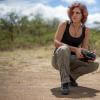 Meredith Palmer
and 1 more
Meredith Palmer
and 1 more
5 March 2025 9:10am
Introduction to Acoustic Monitoring
5 March 2025 9:05am
Introduction to Conservation Technology
5 March 2025 9:00am
Advancing Hierarchical Classification of Ocean Life
4 March 2025 10:09pm
4 March 2025 10:13pm
Wildlife Monitoring Internship 2025
3 March 2025 3:02pm
Conservation Tech Career Pathways - what do you want to know?
17 June 2022 1:30pm
20 April 2024 5:36pm
Unfortunately , not yet . Still digging into it in my free time. And trying to setup a camera in my bord feeder for a mini conservation project in my back garden :)
20 April 2024 5:41pm
Hi Soumya ,
Interested to know if you are pursuing distance education in ML while at your current job. I would love to hear more about your journey on course specifics and the platform you use to complete the education, and I would love to hear if you have any recommendations based on your experiences.
Thanks,
Savi
25 February 2025 1:19am
Hi Savi,
Apologies for the delayed response.
I have finished my Marters in AI and ML. Happy to share.
Soumya
advice on tech and conservation career
21 October 2024 5:41pm
21 November 2024 8:16pm
Hi Adam,
I am an employer in wildlife tech in Canada. Unfortunately, we don't have an overlap with your skill set and training but I can offer some advice.
From an employer perspective, I always prefer hiring people with a passion and background in wildlife. However, it is extraordinarily rare to get applicants with this background. A combo of applicable technical training and passion/experience in wildlife at least for me is a guarunteed interview. I would recommend you do an extensive search of potential employers in wildlife tech and start introducing yourself. Call, email, visit ones close if you can, even if they are not actively hiring.
You may also want to consider going to the dark side to get an early stage boost - for profit environmental consulting often done by engineering firms. They always need GIS work. The work of course is environmental compliance for development purposes not conservation but you get a lot of hours and gain seniority quickly if you choose to move back to the good side.
Lots of service side or non-profits at the least view GIS as an asset so you may have luck there. Organizations doing drone work would be a good place to start.
For your resume, some feedback:
- I prefer a 1 or 2 page max resume for an early stage person. You can cut some block text from your descriptions. You may want to format the resume using a designed template as well.
- A photo of yourself, date of birth, and health status are not common or expected in North America. Most employers do not want to overtly get this information and may filter out your resume because of it. Consider a separate format for N. America if you look here.
Best of luck in your job search.
20 February 2025 9:32pm
Hi @Adamtours , in case you are still looking for an internship this opportunity at SOLOM EARTH might interest you. Alternatively, the Satellite Applications Catapult will be advertising soon several interhsips (they may or may not be conservation related though but keep an eye out for those).
Hope this helps!
24 February 2025 10:23am
Adam,
I work for the Zoological Society of London. We currently have a 9-month paid internship in the Estuary and Wetlands team, supporting inshore marine habitat restoration projects. The closing date is soon (26th Feb).
See here:
Tropical fieldwork funding! Up to $15,000 -Susan Wojcicki Fellowship
10 February 2025 7:01pm
SPOTS Internship Programme
6 February 2025 3:38pm
Summer Internships at SDZWA (Conservation Technology Lab)
6 February 2025 3:49am
SDZWA Conservation Tech Summer Fellowship
5 February 2025 9:09pm
Guidance for a career changer
13 January 2025 10:30pm
29 January 2025 6:57pm
Hi Manish,
There are other related posts here on WILDLABS with some potentially interesting answers, e. g. this post. Perhaps you might find some useful information there in case you haven't seen it already. Volunteering in that area might also be an interesting entry point.
Cheers,
Alex
1 February 2025 4:42pm
Hey Frank, Thanks for your reply. I really appreciate your insights. It’s cool to see the different paths available in this field. I feel like I’m just starting out and trying to figure out which technologies are key in these industries.
I’m aiming to move from a Data Analyst role to a Data Engineer as that seems to be a standard progression My background is in API and full-stack development with Java/Spring. Right now, I’m diving into Python data libraries and brushing up on my SQL skills.
I’ve put together a simple data pipeline using the Open Weather API (check it out here: https://github.com/MGadhvi/weather-etl) and did some analysis on rhino sighting data from the IUCN (you can find it here: https://github.com/MGadhvi/iucn-rhino-analysis). I’m currently working on a similar project with a larger dataset from the IUCN, using Google Cloud Platform to handle the heavy lifting.
I’m thinking it might be a good idea to find a data role elsewhere to get some experience before jumping into conservation efforts. It might be better to volunteer if possible to learn the ropes
Thanks again for your help. Much appreciated
Best, Manish Gadhvi
1 February 2025 4:46pm
Hi Alex,
Thank you for your reply. I've used Kaggle before but I've never heard of the others.
I'm hoping to start volunteering at my local zoo soon as well so I'll see if there is anything I can do there
All the best,
Manish
Undergrad team available to tackle conservation problem statements
21 January 2025 6:37pm
31 January 2025 9:38pm
Hi Colleen,
Thank you for sharing this exciting opportunity. I am Lucie, International Development Manager of Natural Solutions. We are a company at the intersection of biodiversity and tech for over 15 years. We specialize in developing digital tools for conservation organizations, researchers, and policymakers, helping them collect, analyze, and visualize biodiversity data. More recently, we’ve been exploring new possibilities and began to analyze what we could propose to businesses to support them in understanding their dependencies and impacts on nature (impact assessment platforms that help companies quantify their environmental footprint, define relevant indicators, and develop actionable biodiversity strategies etc)
We would be interested in exploring whether this topic could be relevant for your students.
Would this align with your students' interests and skill sets? Additionally, could you share more details on the timeline and any constraints—when would the project start, and what are the expected deliverables?
Looking forward to discussing this further! My email is lucie_gallegos@natural-solutions.eu
Don't hesitate to reach out!
Best,
Lucie
One Health Researchers anyone?
18 January 2025 9:05pm
23 January 2025 9:08am
Hi Grace,
Are you aware of the wildlife health bridge team at ZSL (link below)? It may be worth reaching out to the team who could point you towards people with similar interests.
24 January 2025 6:46pm
Hi Grace,
One Health is keen interest of mine. While the WHO incarnation of it many years ago focused on reducing antimicrobial resistance, I much prefer to take the more evolved view of more complex interactions between humans, wildlife, and our shared environments.
Quite a few institures in the UK have One Health Labs.
With focus on Africa, Adrian runs a lab at Edinburgh, and Roslin Instiute still do a bunch DOH - Home
He has published lots. Drop him a line Adrian Muwonge - Google Scholar
Also, check out (7) Dr. Gladys Kalema-Zikusoka | LinkedIn
She pioneered one health in Uganda to save gorilla populations, and succeeded! Her NGO is called Conservation through Public Health.
Similar to the issue that was facing gorillas in Uganda, chimps have for years been catching respiratory infections from humans, one source may be shared water sources. A study recently showed that by improving health of local children, chimps can be safeguarded from human to chimp crossover. I haven't seen a renewal of Uganda's One Health Policy which ended in 2023, but I do hope they are carrying on.
Uganda is particularly interesting from a one health perspective and a hotspot for zoonosis potential.
Lots going on in the space :)
24 January 2025 8:48pm
This is super helpful. Thank you for sharing!
Thesis Collaboration
4 January 2025 5:15pm
7 January 2025 12:32pm
Hi Simon,
Did you already contact INBO? Both biologging and citizen science are big themes at INBO. Last year we had a master thesis on camera trapping invasive muntjac. You can send me a private message for more info!
14 January 2025 3:30pm
Hi Simon,
We're a biologging start-up based in Antwerp and are definitely open to collaborate if you're interested. We've got some programs going on with local zoo's. Feel free to send me a DM if you'd like to know more.
15 January 2025 8:30am
Hi Simon,
We (Reneco International Wildlife Consultants) have an ongoing collaboration with a local University (Abu Dhabi, UAE) for developing AI tools (cameratrap/drone images and video analyses) and biomimetic robots applied to conservation (e.g https://www.sciencedirect.com/science/article/pii/S1574954124004813 ). We also have a genetic team working on eDNA. Field experience could be possible, in UAE or Morocco.
Feel free to write me back if you may be interested and would like to know more
Webinar: Drone-based VHF tracking for Wildlife Research and Management
9 January 2025 11:45pm
Canopy access or tree climbing resources for arboreal research
12 September 2024 8:51pm
4 October 2024 10:04pm
Hi all! Folks may be interested in the Cornell Tree Climbing program that is a part of Cornell Outdoor Education. Not only does Cornell offer training, and have a bunch of online resources, but they have also facilitated groups of scientists to collect canopy samples and data.
Cornell Tree Climbing | Student & Campus Life | Cornell University
CTC promotes safe and environmentally responsible tree climbing techniques for
9 January 2025 10:50pm
Hi Dominique,
Thanks for your responses and congratulations on getting trained!
I can see that speaking directly with a climbing professional could be the most beneficial because what climbing methods and equipment you may need will depend very much on individual project goals and budgets. Did you end up speaking with your trainers about your field research goals and what climbing methods may be best for you?
9 January 2025 11:27pm
Hi Mark, thanks for responding. I think you've identified one of the most difficult parts of research climbing: maintaining your climbing skills and knowledge between field sessions.
My husband is an experienced arborist and practices his skills almost daily. I am not an arborist, so I schedule climbing time to keep my abilities fresh and my husband is there to assist. But I know it's difficult for individual researchers to practice on their own and they should only be climbing alone if experienced and not in a remote area.
However, it's possible to train researchers to safely climb in the field for multiple field sessions. My husband and I trained a group of climbers in Cameroon in January, 2024. The goal was to train four climbers who would go into the remote rainforest for several weeks and set up camera traps. They would deploy and retrieve arboreal cameras at different survey locations over two years. We needed to train the teams to operate safely and independently (without an instructor present) in very remote areas.
To train them sufficiently, my husband and I spent 1 month in Cameroon with the field team. We did a few days of basic training at a location near the city and then went with them on their initial camera deployment where we continued field training for 2.5 - 3 weeks. Before going to Cameroon, we had several discussions to determine what climbing method and equipment would best meet their data collection goals and were appropriate for their field site and conditions. We taught them basic rescue scenarios. We also set a climbing practice schedule for the team to maintain their climbing and rescue skills. We strongly emphasized to their management that the field team needed access to the climbing gear and needed to follow the practice schedule. Since the training, the team successfully finished two other camera trap surveys and is planning their third.
This was a lot of up-front training and cost. However, these climbers are now operating on their own and can continue operating for the foreseeable future. I think a big reason is receiving extensive training, tailored to their needs. General tree-climbing courses are great for learning the basics, but they'll never be a substitute for in-field, tailored training.
My Journey with the Women in Conservation Technology Program
27 December 2024 1:50pm








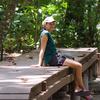










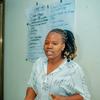




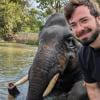


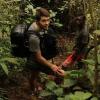






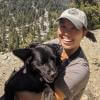



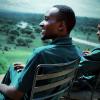




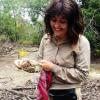

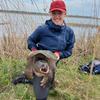



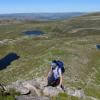

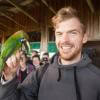




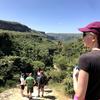

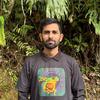






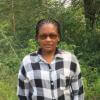
4 April 2025 2:52pm
Hi Karinna,
That seems that a great plan and lots of nice skills to bring in!
Don't hesitate to search the member directory or the organisations inventory to find suitable place for you to go to. It really depends on what you would like to do and where you want to go (or can go).
Wishing you the best in your search.